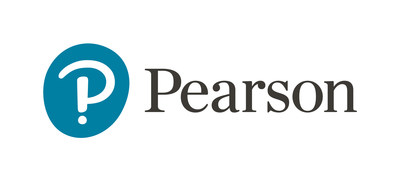
We could not find any results for:
Make sure your spelling is correct or try broadening your search.
| Name | Symbol | Market | Type |
|---|---|---|---|
| Pearson Plc | NYSE:PSO | NYSE | Depository Receipt |
| Price Change | % Change | Price | High Price | Low Price | Open Price | Traded | Last Trade | |
|---|---|---|---|---|---|---|---|---|
| 0.08 | 0.48% | 16.75 | 250 | 11:22:21 |
DAVOS, Switzerland, Jan. 22, 2025 /PRNewswire/ -- New research from Pearson (FTSE: PSON.L), the world's lifelong learning company, finds that inefficient career transitions and related learning gaps are costing the U.S. economy $1.1 trillion annually – a staggering 5% of GDP.

The accompanying report, "Lost in Transition: Fixing the Skills Gap," released today at the World Economic Forum Annual Meeting, warns of a potential global "skills chasm" between employer needs and employee capabilities, and urgently calls for a fundamental shift in approaches to learning and skills development.
The full report details the economic and personal impact of learning gaps during major career transitions - from school to work, layoffs or business shifts, and disruptions caused by AI automation. It also highlights two critical imperatives for immediate, collaborative action across the education and business sectors: the need to learn more effectively and the development of modern skilling pathways that evolve with the future of work.
Prioritize "Learning to Learn"
Improving the way people learn is stressed as vital for an adaptive workforce ready for continual upskilling, career pivots and personal career fulfillment. Pearson advocates for "learning to learn" becoming a core focus across education and corporate training, emphasizing metacognitive skills such as goal setting, critical thinking and self-regulated learning. A cited study found that these approaches can accelerate yearly learning progress by seven months.
Develop Clear Modern Skilling Pathways
Moving beyond outdated linear career paths, Pearson encourages reimagined dynamic and efficient skilling pathways that flex to future workforce needs. It promotes work-based learning like apprenticeships to align skills with real-world demands, tailored support, and mentorships. It estimates the U.S. could gain $40 billion annually just by shortening transition times from formal education to work by six weeks.
Implementing such approaches could unlock trillions for economies while creating life-changing opportunities for millions worldwide.
"There's real potential for the skills gap to become a chasm if we don't act. The traditional education that slingshots people into their careers is no longer enough. Learning how to learn will become the focus for students, workers and employers to help people adapt and re-skill throughout their careers and their learning journey," said Pearson CEO Omar Abbosh. "We can help prevent the skills gap from becoming a skills chasm when employers, educators, workers and government partner to find solutions."
The full report and its findings are based on quantitative analysis including data from Pearson's Faethm, literature reviews and interviews with leading experts. Among other topics explored:
Read Pearson's new report, "Lost in Transition: Fixing the Skills Gap."
Related Pearson News
About Pearson
At Pearson, our purpose is simple: to help people realize the life they imagine through learning. We believe that every learning opportunity is a chance for a personal breakthrough. That's why our c. 18,000 Pearson employees are committed to creating vibrant and enriching learning experiences designed for real-life impact. We are the world's lifelong learning company, serving customers in nearly 200 countries with digital content, assessments, qualifications, and data. For us, learning isn't just what we do. It's who we are. Visit us at pearsonplc.com.
Media Contact:
Laura Ewart laura.ewart@pearson.com (Europe)
Sami Miller sami.miller@pearson.com (US)
![]() View original content to download multimedia:https://www.prnewswire.com/news-releases/1-1-trillion-at-stake-pearson-report-urges-action-solutions-for-skills-gap-302357639.html
View original content to download multimedia:https://www.prnewswire.com/news-releases/1-1-trillion-at-stake-pearson-report-urges-action-solutions-for-skills-gap-302357639.html
SOURCE Pearson

Copyright 2025 PR Newswire
1 Year Pearson Chart |
1 Month Pearson Chart |

It looks like you are not logged in. Click the button below to log in and keep track of your recent history.
Support: +44 (0) 203 8794 460 | support@advfn.com
By accessing the services available at ADVFN you are agreeing to be bound by ADVFN's Terms & Conditions